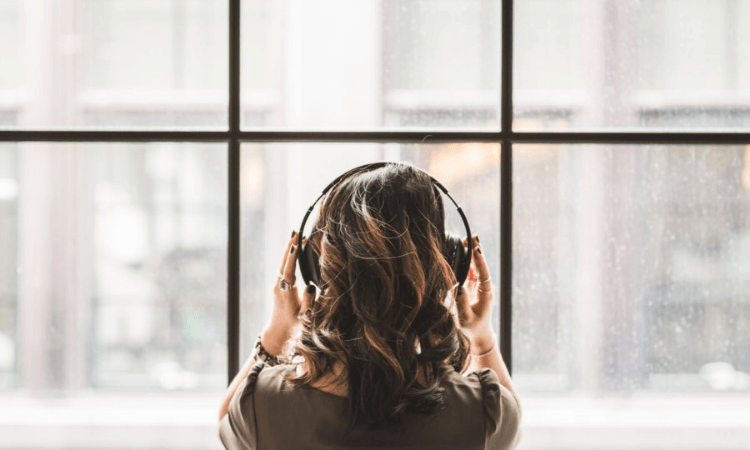Music Therapy at Blue Hills Recovery
Music therapy involves the use of music to support physical, emotional, and mental well-being.
At Blue Hills Recovery, board-certified therapists use music-based interventions to address mental health, addiction recovery, and various social and physical needs.
Our music therapy sessions provide an additional tool to improve emotional well-being, self-expression, and overall quality of life. Music therapy is a unique way to support mental health and addiction recovery through the power of music.
Learn how we integrate the power of music into our comprehensive addiction and mental health treatment programs at Blue Hills.
Understanding Music Therapy for Mental Health & Addiction Recovery
Music therapy is effective in treating substance abuse and mental health disorders by helping you express emotions, relieve stress, and improve overall well-being.
The American Music Therapy Association (AMTA) supports this field, emphasizing its benefits for people of all ages and backgrounds.
Music therapists are healthcare professionals with extensive clinical training and a specialized credential called a Music Therapist-Board Certified (MT-BC), awarded by the Certification Board for Music Therapists.
If you’re struggling with substance abuse, mental health issues, disabilities, or other health problems, music therapy at Blue Hills Recovery might help.


Benefits of Music Therapy
Music therapy can help you feel better physically, emotionally, and socially. It can be used in many places, like hospitals, nursing homes, intensive care units, and correctional facilities.
Music therapy can help people with autism spectrum disorder, Parkinson’s disease, and Alzheimer’s disease, as well as with a range of addictions and mental illnesses.
The effects of music therapy also aid in improving cognitive skills, communication, and physical health. It offers a holistic approach to healing.
Here are some key benefits of music therapy in recovery:
- Emotional support: Music therapy helps you work through difficult emotions, especially during recovery from addiction or mental health issues.
- Better mental health: Activities like songwriting or improvisation let you express yourself and build healthy ways to cope.
- Physical health benefits: Music therapy can lower blood pressure and heart rate, helping you feel less stressed and improving your physical health.
- Self-expression: Music gives you a way to explore and express your feelings, building self-awareness and supporting emotional wellness.
- Safe, supportive environment: Working with a board-certified music therapist provides a safe and trusting therapeutic relationship to help with your recovery.
Mental Health and Addictions Treated with Music Therapy
Music therapy is effective in treating a range of mental health issues and addictions. It can help with substance abuse, mental health problems, or both. It can help you feel better by helping you find healthy ways to cope with your feelings.
Here are some of the conditions the music therapy program at Blue Hills Recovery can help with:
- Anxiety
- Depression
- Mood disorders, like bipolar or different types of depression
- Personality disorders, like antisocial personality disorder
- Trauma and types of PTSD
- Substance abuse issues

Our Mental Health and Addiction Programs That Use Music Therapy
There’s power in music. It can affect your thoughts and feelings. It can pump you up or bring you down.
That’s why Blue Hills Recovery integrates music therapy into several of our mental health and addiction programs, adapting it to suit different levels of care and schedules.
Outpatient Program
Day Treatment Program
Evening Treatment Program

Who Can Benefit from Music Therapy?
Music therapy can benefit a wide range of people. Those who might find it especially helpful include:
- People of all ages, from adolescents to older adults.
- Those with disabilities, including physical, developmental, and cognitive disabilities.
- People with mental health and addiction issues, like substance abuse, depression, or anxiety.
The effects of music therapy support improved communication outcomes, positively impacting voice, speech, and language abilities. These benefits make music therapy a valuable tool in the recovery process for those with brain injuries.
It can help improve mood, quality of life, cognitive skills, physical abilities like walking and talking, and communication skills. It may be particularly useful for those struggling to verbalize their issues.
What to Expect in a Music Therapy Session at Blue Hills
In music therapy sessions, clients work with licensed professionals, many of whom have a bachelor’s or advanced degree in music therapy. Therapists use approaches such as the Nordoff-Robbins approach and other evidence-based practices.
These music interventions have demonstrated benefits in psychiatry, helping clients improve cognitive skills, express emotions, and build resilience.
Here’s what you can expect in a music therapy session at Blue Hills Recovery:
- Assessment and goal setting: The music therapist talks with you about your goals and what you need to support your recovery.
- Music activities: Sessions may include different types of music therapy, like listening to music, songwriting, or improvisation, which help you express your feelings.
- Exploring emotions and relaxing: Using methods like guided listening or creating music, you can safely explore your emotions and reduce stress.
- Reflection and feedback: You and your therapist review your progress and set new goals for future sessions to keep building on your recovery.
Music Therapy Costs and Payment Options
The cost of music therapy can vary depending on factors like the level of care, the type of program, and insurance coverage.
Blue Hills Recovery will work with you to find payment options that make treatment accessible, such as:
- Insurance coverage: Many health insurance plans cover music therapy services as part of mental health or addiction treatment.
- Self-pay and financial assistance: If you don’t have insurance coverage, self-pay options are available, and financial assistance may be offered for qualifying clients.
Verify your insurance coverage on our website. You can reach out to our team with any questions about insurance or payment options.
Find Harmony and Healing Through Music Therapy at Blue Hills
At Blue Hills Recovery, music therapy offers an inspiring approach to mental health and addiction recovery. Our music therapists work with you, helping you uncover the healing effects of music.
By integrating music therapy into our programs, we aim to support you in your journey to wellness, building coping skills, self-expression, and resilience.
Think you or a loved one could benefit? Let music guide you on your path to healing. Contact Blue Hills Recovery to learn more about our music therapy programs.
Music Therapy FAQs
Is music therapy the same as therapeutic music?
Do I need any musical talent for music therapy to work?
How does music therapy complement other treatments?
Sources
Let’s talk about how we can help.
A Life of Healing Can be Yours.
You deserve to become your best self. With decades of combined experience in the field of addiction medicine, our staff knows what it takes to build a foundation for recovery.